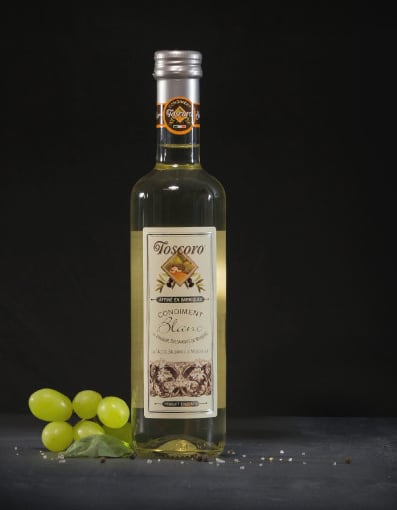Monaco resident Roberto Mengozzi registered the name Toscoro as a trade mark in the EU in June 2002. It falls under the French firm Ital Passion which groups together a number of Franco-Italian brands Florelli and Artesini.
Toscoro includes edible oil fats, olive oils, mushrooms in sauce, dried mushrooms and coffee and cakes.
At time of going to press, the name was still being used on Toscoro’s website and branding.

In December 2012, the validity of the trade mark was contested by Toscano PGI, a consortium of producers of Tuscan extra olive oil, which argued the trade mark was invalid because it sounded too similar to the name Toscano, which is protected by a Protected Geographical Indication (PGI) certification.
This certification guarantees that the olives are grown, pressed and bottled in the central Italian region.
Its challenge was partly upheld by the appeal board at the European Union Intellectual Property Office, (EUIPO) which said the Toscoro trade mark could not be used in relation to certain goods: edible oil fats; edible vegetable oils, olive oils; products for flavourings or seasoning foodstuffs and salad dressing.
Mengozzi contested the decision and appealed against it, arguing that Toscano is a generic term for all goods coming from Tuscany, including olive oils. He said the name Toscoro does not in any way evoke the region of Tuscany so the two words cannot be confused.
Mengozzi also argued that the two words are pronounced differently, are visually different, and the word Toscoro is an invented word whereas the PGI conveys the notion of olive oil from Tuscany.
He also argued that the PGI in question is not particularly well known so it would be difficult for consumers to be confused and claimed that EUIPO had previously registered similar trademarks to the PGI in question.
The appeal board, though, ruled against Mengozzi, “concluding that the use of the sign Toscoro amounted to an evocation of the PGI at issue”.
It said the fact that Toscoro is a made-up word did not detract from its conclusion that it could be construed as being similar to the PGI.
Furthermore, it countered Mengozzi’s argument that similar sounding words to the PGI had been registered by EUIPO by saying that each case needed to be judged on the relevant law and not against previous cases.
The appeal board ruled that the case “should be dismissed in its entirety”.
